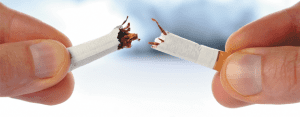Dr. Joseph Freedman MD, MBA
 Smoking is no longer a popular pastime; however, many people still struggle with the addiction. If you are one of them, it’s time to stop. Cigarettes are toxic to your health and living without them is so much better on all levels and aspects of your life.
Smoking is no longer a popular pastime; however, many people still struggle with the addiction. If you are one of them, it’s time to stop. Cigarettes are toxic to your health and living without them is so much better on all levels and aspects of your life.
Most people are familiar with the negative effects that smoking has on their lungs and the increase in cancer related diseases, but often are unaware of the detriment that smoking does to your heart.
Smoking cigarettes and other forms of tobacco causes toxic chemicals to enter your lungs and travel throughout your body. All smoking, no matter how long you’ve done it, or how much in quantity you’ve smoked, affects your heart negatively and causes damage. But the good news is, no matter how long or how much you’ve smoked, quitting will benefit you immensely. It’s never too late to stop smoking.
Smoking correlates to the heart and vascular issues following:
• Causes inflammation in the arteries
• Increases heart rate
• Causes sticky plaque buildup in your arteries (both coronary & peripheral)
• Raises LDL (bad cholesterol)
• Lowers HDL (good Cholesterol)
• Blood vessel walls become stiff and damaged
• Creates abnormal heart rhythms
• Increases blood pressure
• Creates undue stress on your heart
• Causes blood to thicken
• Lowers oxygen levels in blood
The chemicals in the smoke are what cause atherosclerosis (arterial plaque). These chemicals negatively affect cholesterol levels and fibrogen levels, which is a blood-clotting agent. These disturbances can lead to stroke, aortic aneurysms, peripheral vascular disease, heart attack and abdominal aortic aneurysms just to name a few.
Realistic advice to help you quit smoking:
• Make a decision and pick a date to quit
• Get rid of all tobacco & lighters
• Plan ahead-Talk to your doctor now about smoking cessation programs, treatment options and medications.
• Let your family and friends know that you’re quitting
• Find a new hobby to stay busy
• Avoid the same old routine that allowed you the convenience of smoking
• Keep track of the money you save, write it down every day and make a tally
• At the end of each week that you continue to not smoke, treat yourself to something nice.
• Don’t give up! It’s not easy, but it’s worth it to quit.
By quitting smoking, you reduce your risk of coronary heart disease, stroke, and cardiovascular disease.
Benefits and Statistics of Quitting According to the U.S. Department of Health and Human Services:
• Within 20 minutes of quitting, your heart rate will decrease
• Within 12 hours of quitting, the carbon monoxide levels in your blood will decrease to normal
• Within 3 months of quitting, your risk of a heart attack decreases, and your lungs will begin to work better
• After 1 year, your added risk of coronary artery disease is half that of someone who smokes
• After 5 years, your risk of stroke is the same as that of a nonsmoker
• After 10 years, your lung cancer death rate is about half that of someone who smokes
• After 15 years, your risk of coronary artery disease is the same as that of a nonsmoker
At Cardiac Care Group, they take your symptoms seriously and are prepared to see you and to discuss your conditions. They specialize in providing a wide range of services that focus on the prevention, prompt diagnosis and state-of-the-art treatment of cardiovascular disease.
Joseph Freedman, M.D., Cardiac Care Group
Dr. Freedman brings many years of experience as a cutting edge cardiologist specializing in the prevention, diagnosis, and treatment of all cardiac disease. He trained at the prestigious Cleveland Clinic, continually ranked #1 in Cardiovascular Care, where he focused on cardiac imaging. He achieved five board certifications in Internal Medicine, Cardiology, Comprehensive Adult ECHO, Nuclear Cardiology and Cardiac CT. During his tenure as the lead noninvasive cardiologist at Florida Medical Center in Ft. Lauderdale, he helped lead the hospital to achieve Level 5 chest pain certification, the highest designation of cardiac excellence.
He has spoken on national health care radio programs and has appeared on local news, highlighting the latest in cardiovascular care. Dr. Freedman prides himself on being an advocate for the patient. Every patient is unique, and he works carefully with leading local and national experts to make sure patients receive the best specialty procedural care possible for that particular case. Dr. Freedman has done research in cardiac MRI studies of the heart, in nuclear scanning, and has participated in the research trials of several leading cholesterol-lowering drugs. Dr. Freedman also has extensive experience in pulmonary hypertension and ran a large clinic in Broward County for these specific and often undiagnosed patients. Dr. Freedman speaks Spanish.
Cardiac Care Group
3208 Chiquita Blvd S., Suite 110, Cape Coral, FL 33914
(239) 574-8463
www.flccg.com
This information is for educational purposes only and is not intended to replace the advice of your doctor or health care provider. We encourage you to discuss with your doctor any questions or concerns you may have.










